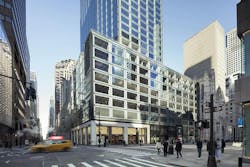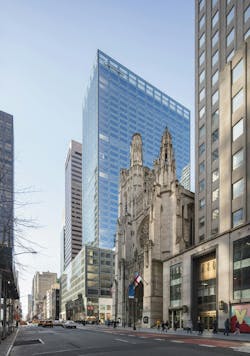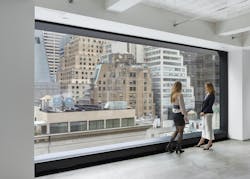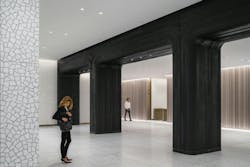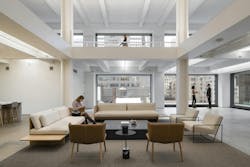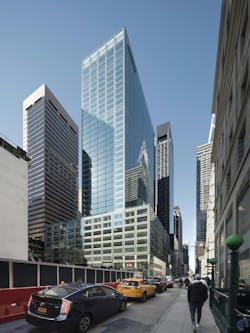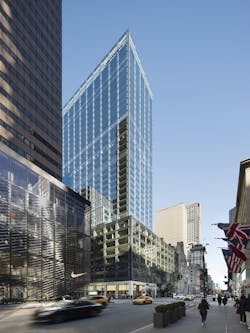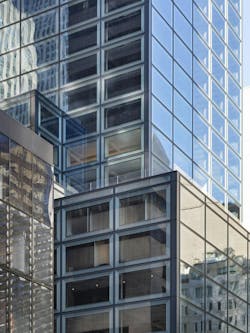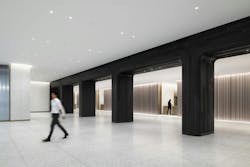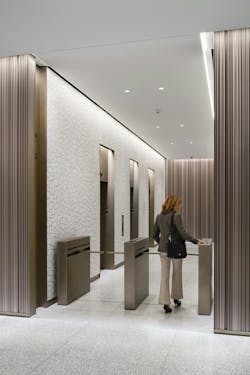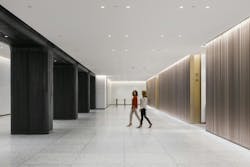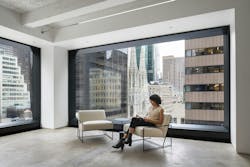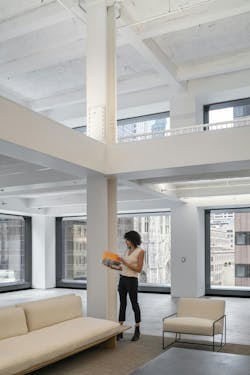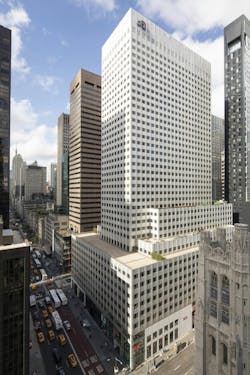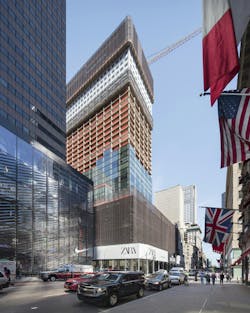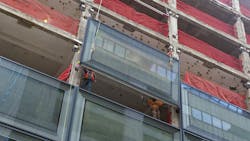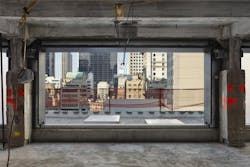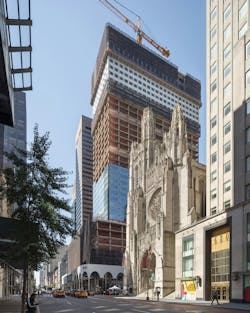New York office revamp by Kohn Pedersen Fox features new façade raising occupant comfort, reducing energy use
The modernization of a mid-century Midtown Manhattan office tower features a new façade intended to improve occupant comfort and reduce energy consumption. The building, at 666 Fifth Avenue, was originally designed by Carson & Lundin.
First opened in November 1957 when it was considered cutting-edge, the original façade of the 500-foot-tall modernist skyscraper was highly inefficient by today’s energy efficiency standards. Using an early version of a semi-unitized curtain wall, the old façade featured units with punched aluminum panels on the bottom and a single glass pane on top. This was advantageous in its light weight, but yielded poor energy efficiency. The project team chose a full reskinning as the best option to upgrade the aging building.
The new façade features the largest single-pane units ever used on an office development in New York City, according to a blog post at KPF.com. These large panes created efficiencies in construction, logistics, and structural detailing. Panel fabricators used a single cut, yielding only minimal waste when producing each unit. Situated inside a four-sided shadowbox, the panels span the full width between columns and the full height between floors. This approach tripled the window area, bringing in plentiful daylight for tenants.
Other improvements on the 1.2 million-sf office tower include:
- Mechanical upgrades for high-efficiency heating and air systems that draw in greater quantities of fresh air.
- A reconstructed lobby with modernized elevators that will support a retail space.
- Numerous columns and low ceilings were eliminated from office floors to maximize interior space.
- Some units offer double-height spaces and interconnected floors, taking advantage of the building’s wide range of floor plate sizes.
- Designers used existing massing—a podium and tower interspersed with multiple setbacks—to create exterior terraces at multiple levels on three sides.
“One of the important aspects of an adaptive reuse project is finding the existing value in a building, and identifying areas that can create more desirable space for users," said KPF Principal Lauren Schmidt, AIA, LEED AP BD+C. "The existing façade at 660 Fifth Avenue was one of the first curtain wall systems when it was built in the 1950s and very modern at the time, but it had limitations in terms of thermal and acoustical insulation, as well as small windows. We approached the façade as a clean slate and proposed opening it up completely with units that would span column to column. This, in a sense, allowed the columns to disappear and create open views. It was a great opportunity to propose something that was perhaps considered atypical, but actually, as we worked through the logistics of it, made sense for a number of reasons and was highly efficient.”
On the team:
Client: Brookfield Properties
Design Architect (full services): Kohn Pedersen Fox (KPF)
MEP Engineer: Cosentini Associates
Structural Engineer: Gilsanz Murray Steficek (GMS)
General contractor: Turner Construction
